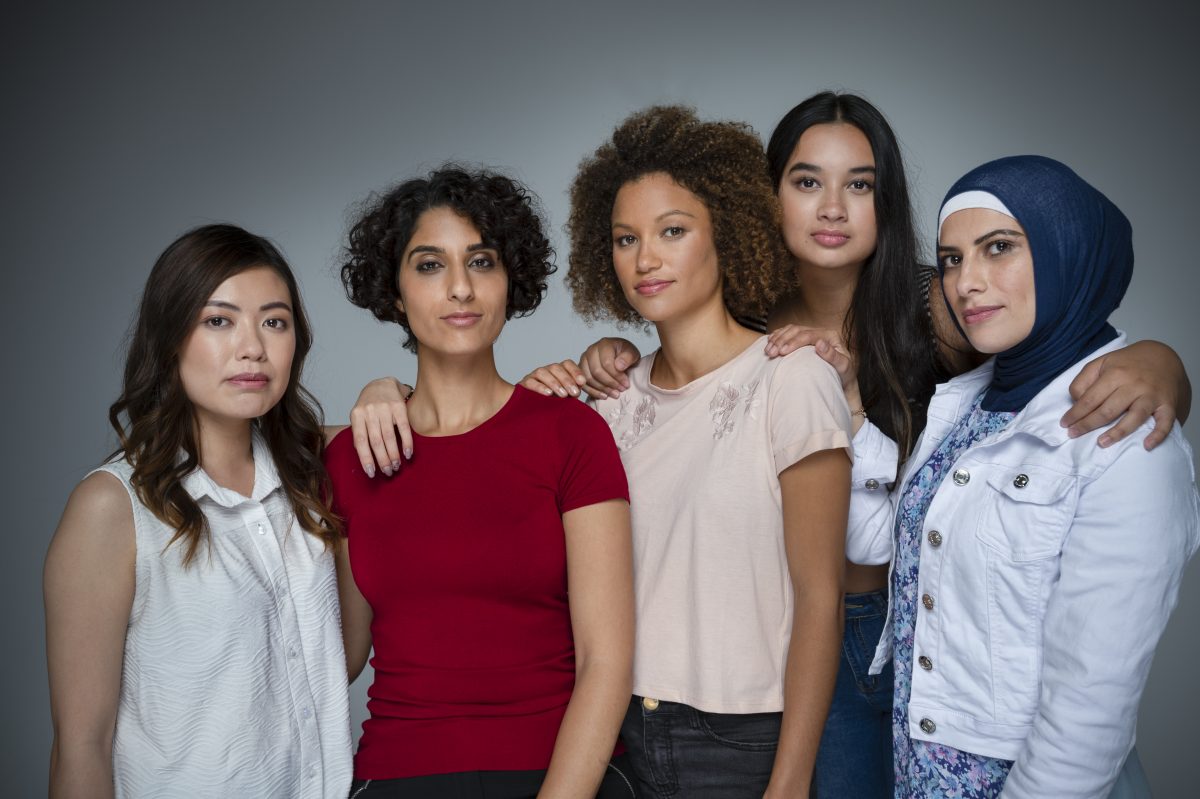Abortion rights, women of color, and LGBTQIA+ people are under attack. Pledge to join us in fighting for gender justice.
A Thank-You to Reproductive Justice Student Groups


During the rise of second-wave feminism in the 1960s and 1970s, young women were fighting for recognition of their rights, including the right to birth control and reproductive decision-making in general. Women-led activism has proven to get results.
Like our second-wave foremothers, reproductive justice groups on college campuses today are going up against institutions that do not want them to succeed.
At the University of Notre Dame, the pro-choice collective Irish 4 Reproductive Health advocates for access to contraception, pregnancy tests, and sexual education. It also creates dialogues for Notre Dame students about consent, sexuality, pregnancy, family planning, and abortion.
As the University of Notre Dame prepares to roll back student and employee coverage for contraception, Irish 4 Reproductive Health has teamed up with the National Women’s Law Center to sue the university and the Trump administration. Notre Dame made a shady backroom settlement with the Trump-Pence administration to deny students, employees, and their dependents insurance coverage of birth control guaranteed to them by the Affordable Care Act, and I4RH did not stand for it. These students are not only advocating for necessary health services, they are political activists just as their predecessors were.
I4RH is not alone in their fight for reproductive health information and services on college campuses. At Boston College, Boston College Students for Sexual Health found itself in the national spotlight in 2013 after the university attempted to discipline the group for distributing condoms to students on campus. Similar to others of its kind, the university does not recognize BCSSH, and even goes so far as to prohibit the organization from holding meetings and events at BC.
As I walked through Georgetown University’s campus as a freshman, I came across a table in the student center. Their sign read “H*yas for Choice,” and they were distributing condoms and inviting students to approach them with questions and concerns about their sexual health.
I had not heard about the organization at all while applying to Georgetown, and later I was shocked to discover that this club does not receive any funding or endorsement from the university, unlike the other 300+ student organizations.
If not for student-run initiatives like H*yas for Choice and Irish 4 Reproductive Health, many students would be at risk for STDs and unwanted pregnancies—not only because of a lack of services but also because of a dearth of information. Students are empowering students with knowledge, and equipping them to make healthy sexual decisions. In a country with a Supreme Court that has just decided women do not deserve to hear the truth about their pregnancies and option to have an abortion, this work is more vital than ever.
Though the work these students do for their communities is admirable, many are reliant on donations to provide these necessary resources on campus.
“We do this work because it’s necessary and it’s fulfilling and it’s right. But I don’t want to give the impression that it’s easy, because it’s certainly not,” said Angela Maske, president of H*yas for Choice, in an email. Maske spoke of how HFC would get kicked out of rooms they had booked for a meeting, and how difficult it could be to scrape together the money for an event. Constantly being on the defense for what should be basic rights is par for the course.
These student groups don’t just educate and organize; they’re also making real political change. Members of I4RH stepped up when their university acted to restrict access to birth control for thousands within the Notre Dame community, and their actions resonate for the thousands more that could be similarly threatened.
“We know that challenging university policies that restrict students’ access to necessary health care is crucial,” added Maske.
In the age of #MeToo, women are once again defining and defending what is acceptable and what is not when it comes to consent, their bodily autonomy, and reproductive decisions. So to these grassroots groups advocating for respect, sexual autonomy, student health and safety, we say thank you.
Thank you for providing what your universities and government refuse to acknowledge as your rights: rights to life, liberty and happiness. It’s your life— your health— that is at stake. It’s your liberty to determine the course of your life that is up for grabs. And it’s your happiness, in which sexual health, economic security and bodily autonomy play indispensable roles, that is being threatened. So thank you for continuing the good fight, and we’ll see you on the battleground.




